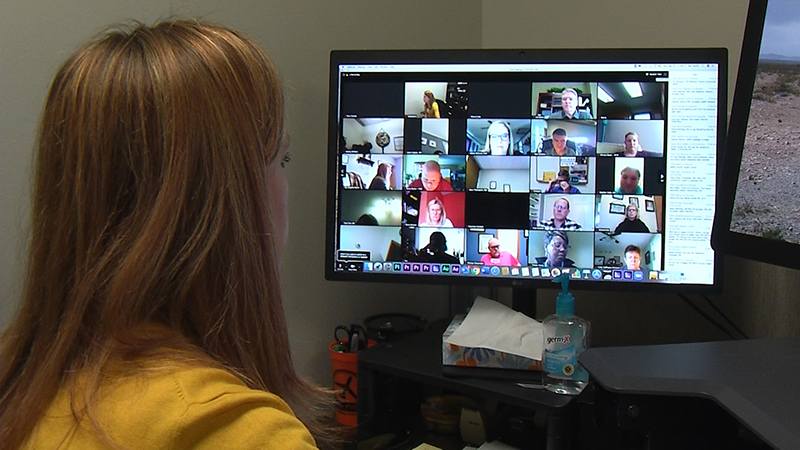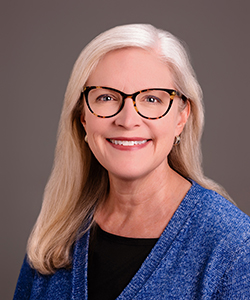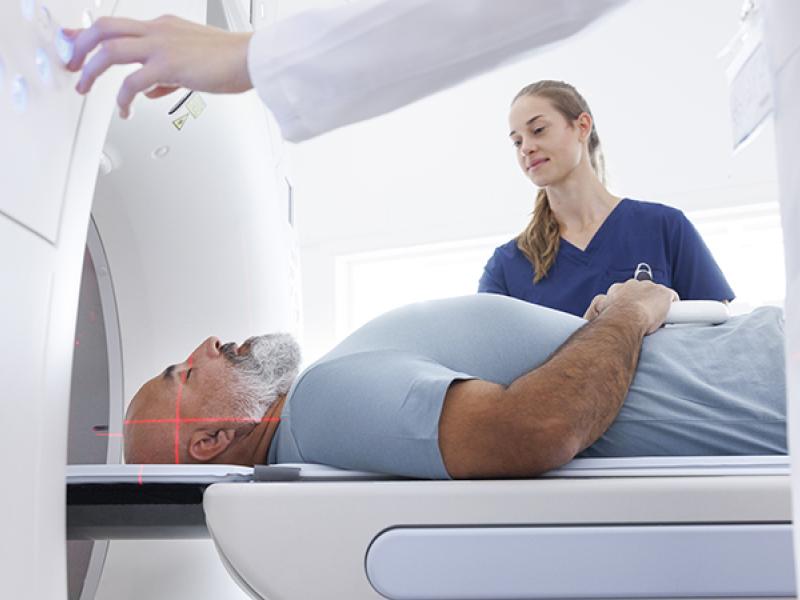
Nurse practitioner Laurie Sparr operates the Central Ozarks Medical Center clinic that serves students and employees of the Waynesville School District. She has yet to treat a patient with symptoms of COVID-19, but the virus is on her mind.
Much of the attention on COVID-19 focuses on how rapidly it spreads in densely populated cities, but rural areas face their own challenges.
“For some people, if they don’t see it first-hand, they don’t necessarily recognize it’s a problem,” Sparr said. “So in the rural areas, you might have more people who aren’t going to socially isolate or not follow the guidelines. They could expose other people without knowing it. And then there is the limited access to hospitals and equipment.”
On March 23, Sparr was one of about 125 clinicians and health care administrators across Missouri who joined a video conference to learn from a panel of experts about protecting their communities from COVID-19.
In the state’s fight against the virus, communication and collaboration are vital, and that’s where the MU School of Medicine’s Missouri Telehealth Network plays a key role. It has five years of experience hosting Show-Me ECHOs — short for Extension for Community Healthcare Outcomes — to help the state’s primary care providers learn from specialists how to help patients with conditions ranging from asthma to opioid addiction.
The Missouri Telehealth Network quickly organized the first COVID-19 ECHO, which will be held each Monday until the public health crisis ends.

“It's going to take all hands on deck to meet this challenge,” said Karen E. Edison, MD, the senior medical director of the Missouri Telehealth Network and Show-Me ECHO. “Because the Missouri Telehealth Network was already so familiar with starting ECHOs and the team is so skilled at doing what it takes to get an ECHO up and running, we thought we should use this resource to get information out to help save lives in Missouri.”
Randall Williams, MD, the director of the Missouri Department of Health and Senior Services, gave an update on the state’s preparedness and strategy. Tim Shryack, RN, the CEO of Missouri Ozarks Community Health, presented the case of a patient who ultimately tested negative for the virus. He explained the steps the care team took and the challenges faced along the way so others could learn from the experience.
Then it was time for the doctors, nurse practitioners and administrators who had joined the video conference to submit questions. An expert panel, which included MU Health Care’s Christelle Ilboudo, MD, an infectious disease specialist, answered the questions.
“The Department of Health puts out good information, and lots of other people do, too,” Edison said. “But there's nothing like being able to ask your own questions. The whole magic of ECHO is in the learning collaborative around case-based discussion. So one case was brought up for discussion, and it created all kinds of questions. That’s how learning happens. That's how adults learn the best, is through case-based discussion where there’s lots of give and take, where people can ask questions and get those questions answered by local experts in real time.”
In the first COVID-19 ECHO, many of the questions fell into two categories: the safety and effectiveness of medications that have been suggested as potential treatments, and the best practices for using personal protective equipment such as masks. Clinicians who sign up for the ECHO but can’t participate in the live conference can watch the video later.
Sparr said the presented case and the follow-up Q&A were helpful. She feels as prepared as possible if she starts to see patients with COVID-19 symptoms. The COMC clinic where Sparr works is a two-person operation — just her and a certified medical assistant — so it’s reassuring to have a connection to infectious disease experts and a statewide network of peers asking questions she might not have considered.
“When the providers in the local community are up to date with the latest evidence-based information, they're able to get that information out to their community and to their patients and take better, safer care of patients and protect themselves and the health care providers that are there,” Edison said. “I think Missouri health care providers now have a place they can go and not feel like they're out there on their own.”





